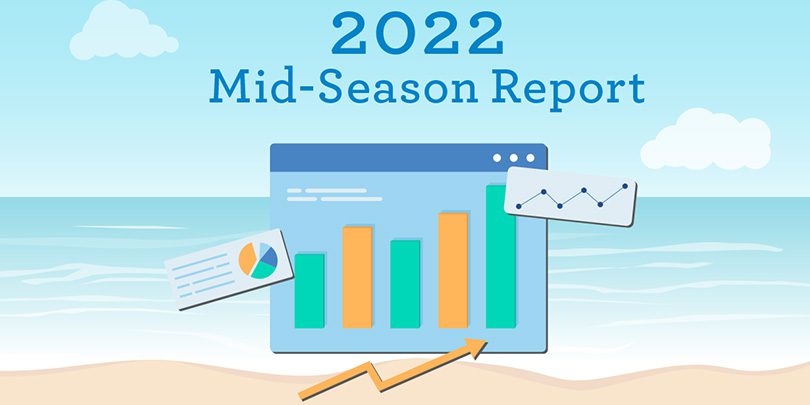As of roughly the mid-season point of the 2022 vacation rental season, we have a fairly clear idea of how the rental season is shaping up and how the remainder will unfold. In our July 26 Homeowner Zoom Meeting (view video above), we shared some of our findings.
The increased vacationer demand of the past 2 years has continued into this one. Not only did the pandemic help to lengthen the booking season (and increase longer-term rentals), but it also impacted the timing of bookings. Vacationers are now planning their trips year-round and further in advance. Whereas December and January bookings used to be considered “early,” now many bookings are being made in the fall and even the summer before.
And, if your listing is not active or you have not yet entered pricing and availability for next season, you may miss out on the wave of early bookings. But first…
A look at the numbers
Looking at the past 7 years of data, we tend to fixate on the spikes: the one in June of 2020, when things re-opened after the lockdown, and then again in March of 2021, when the vaccines became available.
Those spikes, especially the one in 2020, represent records that are never going to be broken – at least, let’s hope not, since it took a pandemic to get there!
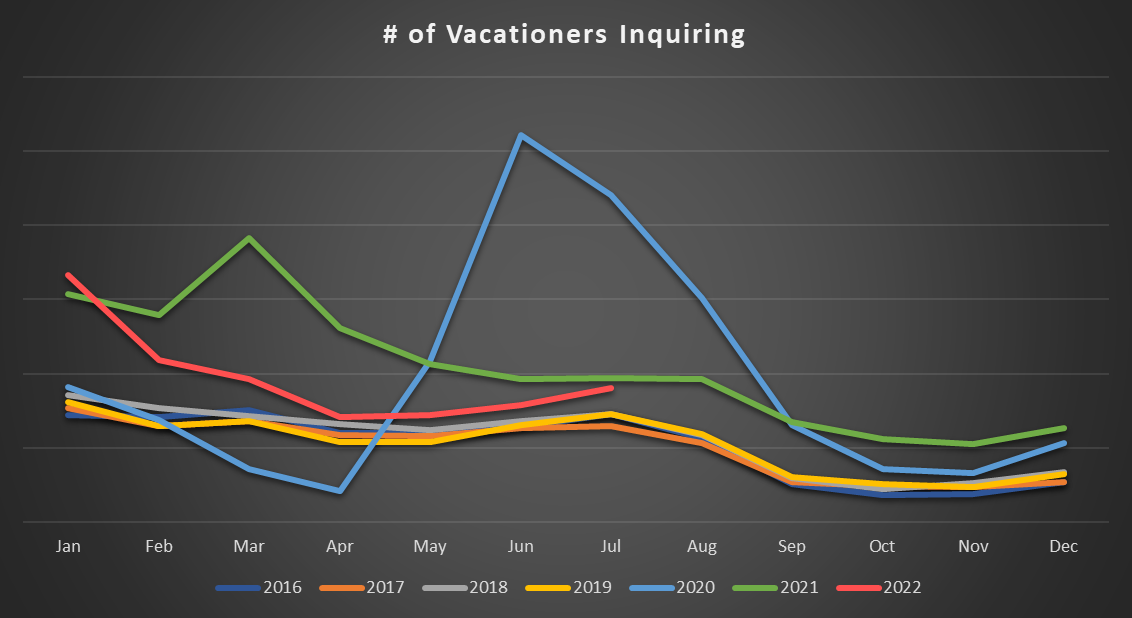
But if we remove the last two years (2020 and 2021), it allows us to focus on where 2022 compares to pre-pandemic levels.
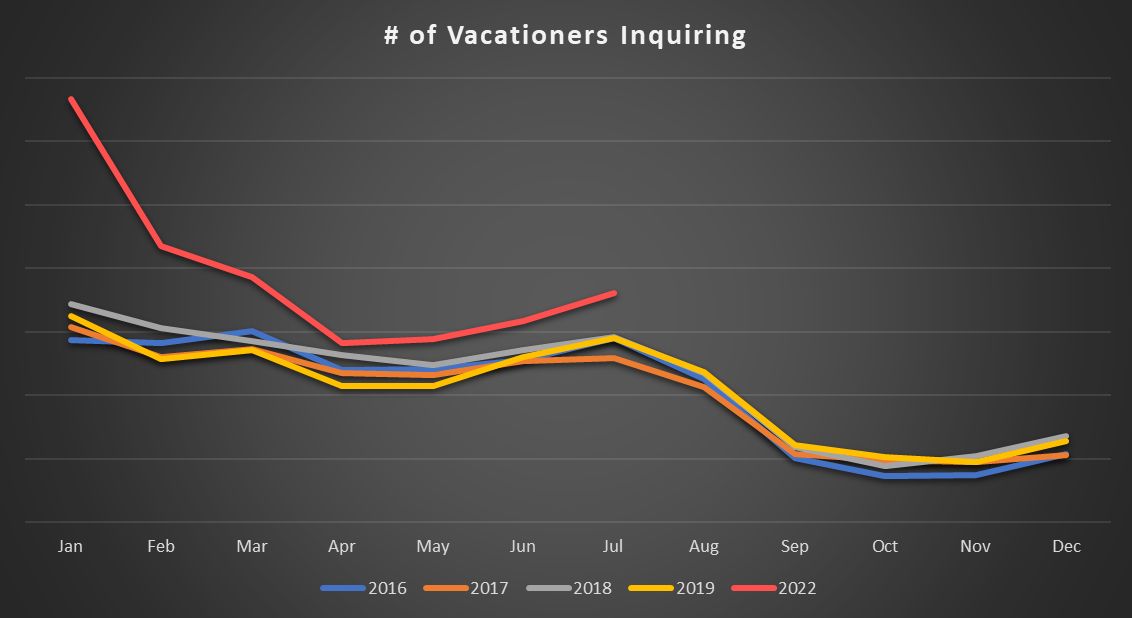
And what we see is that we are settling into a demand for short-term rentals that is still well above the pre-pandemic norm, generally 10-20%.
Naturally, actual bookings numbers reflect inquiry/demand ones. Thus, a first look at summer bookings also shows a decrease in comparison to 2021.
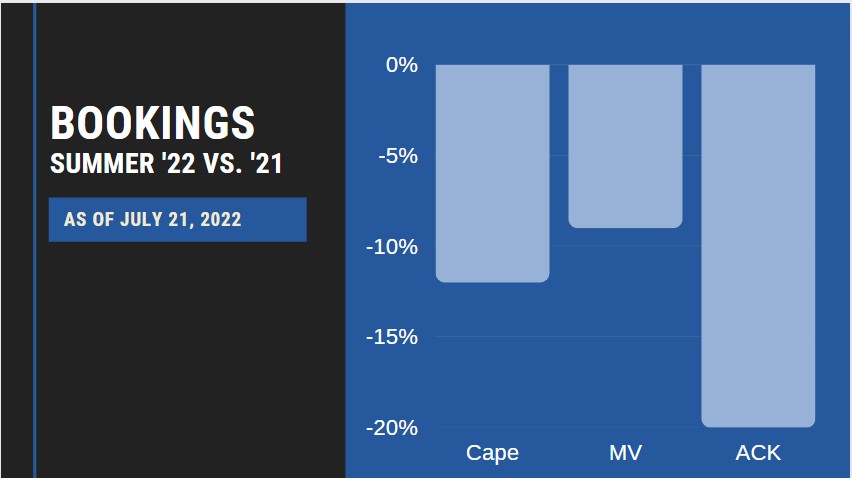
Compared to the pre-pandemic season of 2019, however, this season’s bookings are 5 – 10 – 15% higher.
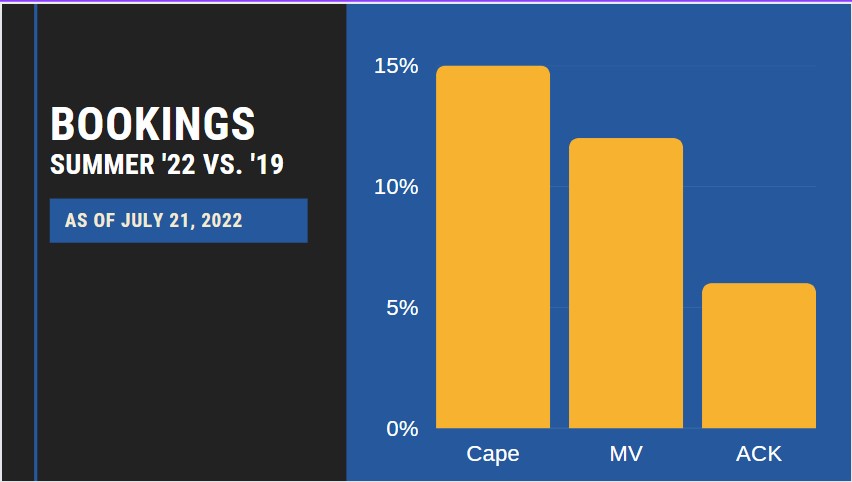
An early look at fall 2022 bookings
Notably, 2022 fall bookings are even above last year for the Vineyard and Nantucket – and well above 2019 for all 3 regions of the Cape and Islands.
Showcase the impact on off-season interest.

Current summer availability
After all the inquiries and bookings to date, it’s interesting to see how much inventory is left. Here’s a look at the percentage of weeks that are currently available on our active listings.
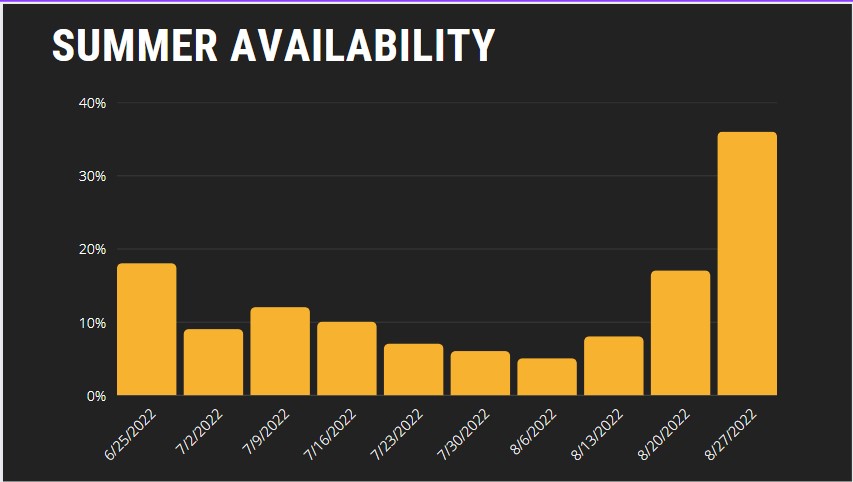
In comparison to last year…
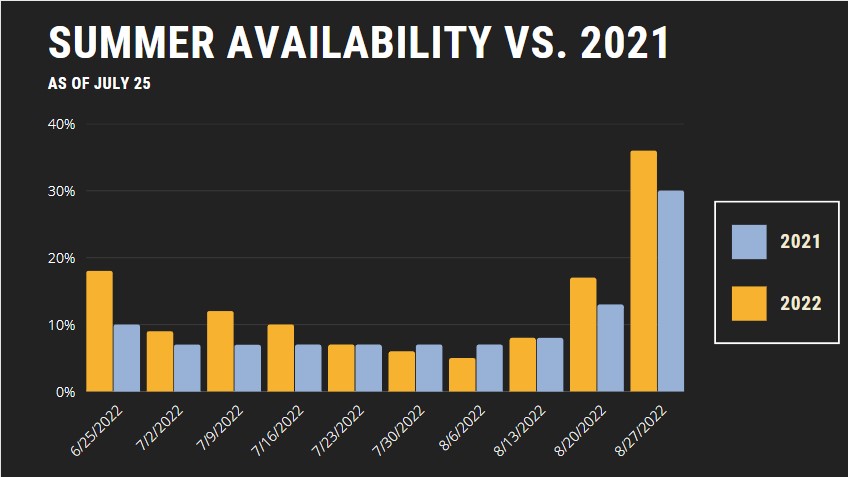
The last week of August always jumps out. Of our currently active listings, about 1/3 are still available. It’s the most difficult week to book of the summer and often the most last-minute.
Although there is still time to fill that week, pricing is key. Vacationers are very aware that there is so much more available, and they expect to pay a little less. So, you’re not alone if you still have that week available, and there are options for you to drive inquiries for that week. (Read about How to Fill Last-minute Vacancies and how to use special offers to promote your home.
Looking ahead to 2023
Undoubtedly, most homeowners are deeply engrossed in providing this summer’s guests with the best experience possible.
But some vacationers are searching and planning even now for next season – especially multi-week and multi-family rentals. We have recently extended our calendars for vacationers to be able to search for 2023, and early booking numbers are once again rising.
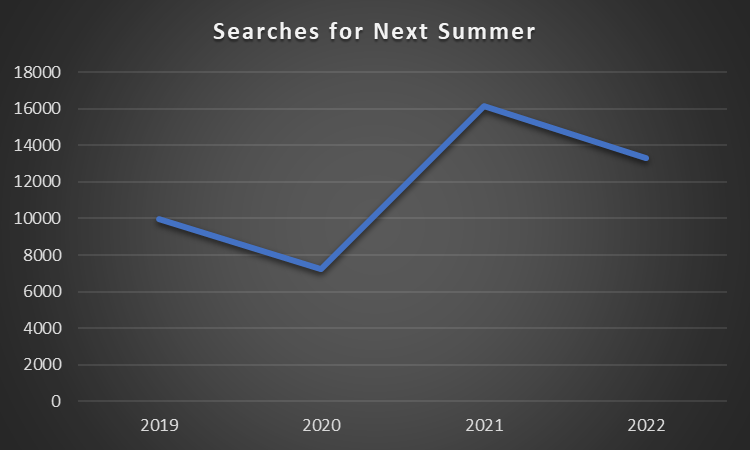
The fall of 2021 saw the highest rate of inquiries in our history. They were not all looking for fall vacations but were in large part inquiring for the 2022 summer season. Especially on the Islands, vacationers understand the urgency of booking early. Although not as high as last year, early bookings so far this year are significantly stronger than 2019 and 2020.
So, if your policy has been to wait until the beginning of the calendar year, we urge you to revise it and open your calendar and pricing by as early as August or September.
Worried about protecting your repeat guests and family use?
There are strategies you can employ to safeguard them without missing the opportunity to also take advantage of the early interest from vacationers and bring in new bookings. Read more about taking advantage of early bookings.
Promising outlook
The STR industry as a whole was given a big boost by the pandemic, and particularly on the Cape and Islands. The pandemic opened the eyes of vacationers to another alternative to international travel and staying in hotels, inns, and motels. And many vacationers have now decided to stick with short-term vacation rentals, within a day’s drive no less, going forward.
Even as the pandemic recedes, strong vacationer interest/demand in the Cape and Islands is still here, and we believe it’s here to stay.

